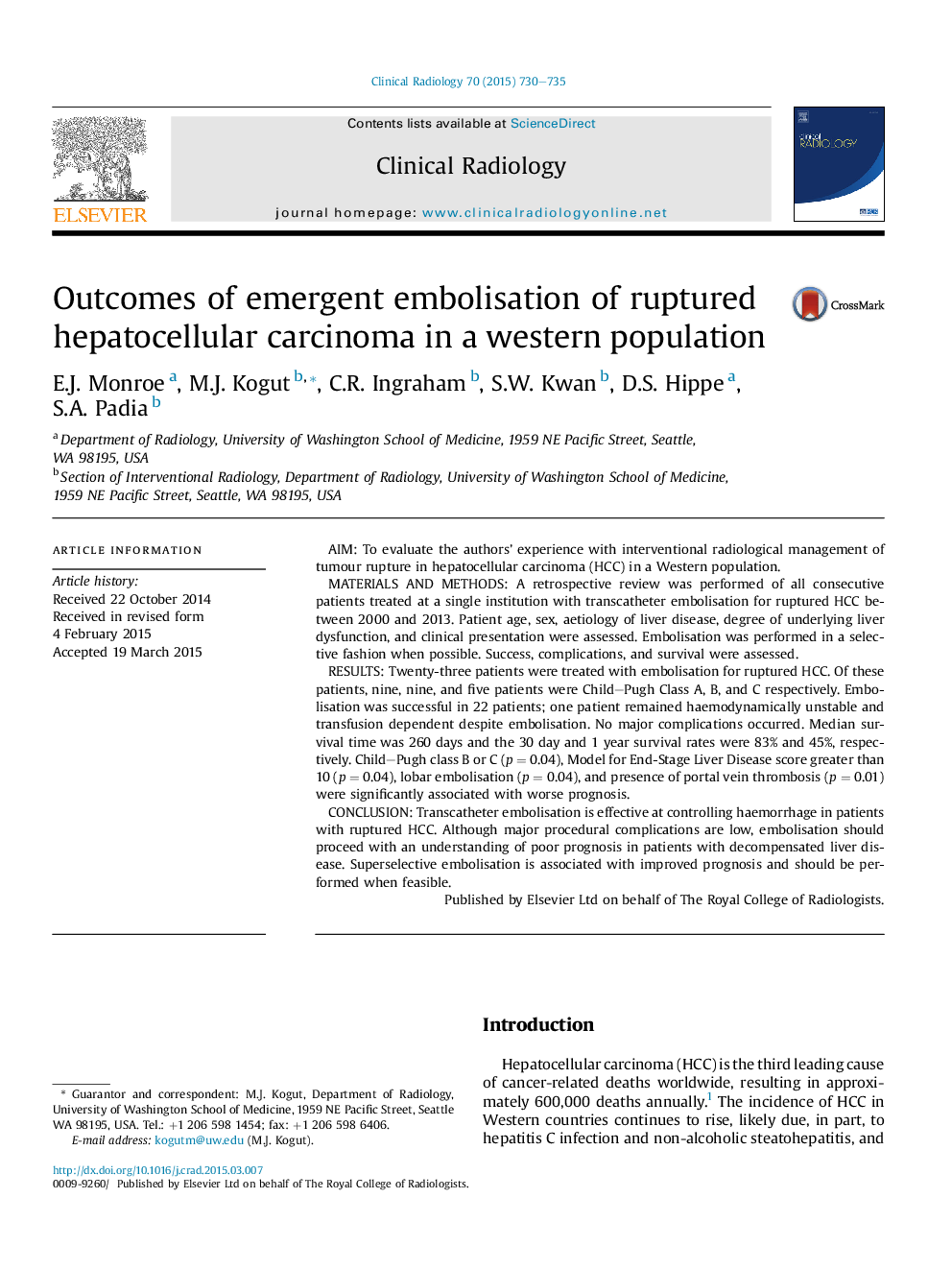| Article ID | Journal | Published Year | Pages | File Type |
|---|---|---|---|---|
| 6190844 | Clinical Radiology | 2015 | 6 Pages |
â¢We reviewed our outcomes after transcatheter embolization of ruptured HCC in a western population.â¢Overall survival in the setting of ruptured HCC remains poor despite successful embolization.â¢Worse liver function, portal vein thrombosis, and lobar embolization were all associated with decreased survival.
AimTo evaluate the authors' experience with interventional radiological management of tumour rupture in hepatocellular carcinoma (HCC) in a Western population.Materials and methodsA retrospective review was performed of all consecutive patients treated at a single institution with transcatheter embolisation for ruptured HCC between 2000 and 2013. Patient age, sex, aetiology of liver disease, degree of underlying liver dysfunction, and clinical presentation were assessed. Embolisation was performed in a selective fashion when possible. Success, complications, and survival were assessed.ResultsTwenty-three patients were treated with embolisation for ruptured HCC. Of these patients, nine, nine, and five patients were Child-Pugh Class A, B, and C respectively. Embolisation was successful in 22 patients; one patient remained haemodynamically unstable and transfusion dependent despite embolisation. No major complications occurred. Median survival time was 260 days and the 30 day and 1 year survival rates were 83% and 45%, respectively. Child-Pugh class B or C (p = 0.04), Model for End-Stage Liver Disease score greater than 10 (p = 0.04), lobar embolisation (p = 0.04), and presence of portal vein thrombosis (p = 0.01) were significantly associated with worse prognosis.ConclusionTranscatheter embolisation is effective at controlling haemorrhage in patients with ruptured HCC. Although major procedural complications are low, embolisation should proceed with an understanding of poor prognosis in patients with decompensated liver disease. Superselective embolisation is associated with improved prognosis and should be performed when feasible.
